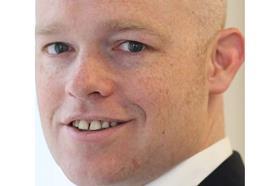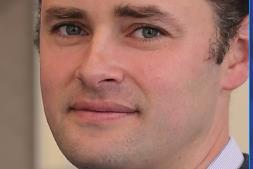Ben Horner, John Gooch and Graham Rich outline steps for trust leaders to boost productivity by using existing resources

Sponsored by

How to meet increasing demand with a limited budget? The traditional response has been to seek additional funding, but despite recent promises, the scope for investment remains limited over the medium term.
So, the best remaining option is to stretch existing available resources – to do more with the same – without compromising on either quality or outcomes.
Where to start?
One area where it is possible to get traction is in slot based activities (operations, outpatient appointments, scans, endoscopies, etc).
One approach that can be used is “smart scheduling”, with an emphasis on realising efficiency improvements while protecting quality.
The approach uses well established Lean principles for reducing waste and increasing throughput – tailored to the unique demands of the hospital setting.
Smart scheduling involves focused and consistent engagement on the most common problems, with clear evidence based goals and engaged frontline teams
Essentially, smart scheduling involves focused and consistent engagement on the most common problems, with clear evidence based goals and engaged frontline teams. This, in our experience, is the only way to achieve sustainable impact.
The results are impressive: for example, enabling a radiology department to conduct 29 per cent more CT scans each day, and a specialty surgical unit to improve its theatre utilisation by almost a third, to above 90 per cent.
What needs to be done?



Consider theatre optimisation. By tradition, theatres are famous for their inefficiencies, being plagued by late starts, booking errors, cancellations, delayed transitions, and high levels of intraoperative variability.
The first task is to set your ambition and establish a straightforward method for evaluating progress against it. Typically, you would set two goals: reduce downtime and reduce intraoperative variation.
In our experience, a full 90 per cent of a theatre’s total opening time can be used productively – that is, administering anaesthetics or actually conducting surgery. (See box for potential interventions.)
Such efficiency provides considerable benefits: a smoother patient experience, an improved referral to treatment performance, a boost to morale, and improved finances.
Reducing intraoperative variation requires a pragmatic approach, using an operator’s own historical data to agree median procedure times for scheduling purposes, and then making the variance transparent so that the surgeons can learn from one another.
It all needs careful handling, taking case mix and potential complexities into account.
What is required for success?
There are some common issues that hold trusts back in their quest for greater efficiency:
- The leadership, or some of it, does not feel the need for a transformation: Often, it is the finance department that is seen to lead the programme, with variable engagement of clinical and operational leadership.
- Insufficient support for developing frontline leaders: Transformative change requires active leadership from frontline clinicians. Often, cultivating such leadership is regarded as an “add on” activity, with little time allocated for it.
- Lack of focus: Teams are usually spread across a broad portfolio of initiatives, and the time allotted is seldom proportional to the opportunity.
- Weak programme management: Typically, there is no clear approach to addressing the opportunity, and available data is too limited to allow for regular tracking.
The crucial enabling factors are strong frontline leadership from highly engaged clinicians with impact monitored by a capable PMO. There is no blueprint for building frontline commitment, but we have found that highly engaged teams share three key features:
1. Leadership
- Crucially, they are clinician led; operational changes affecting the frontline will make a lasting impact only if they are endorsed and led by clinicians.
- They have strong executive backing, working hand in hand with clinical leaders to engage the organisation and resolve issues.
- They are overseen by cross functional teams with clear roles and responsibilities.
2. Timely information with standardisation
- They work with robust analytics to engage clinicians and other key stakeholders, and to direct decision making.
- Once new practice has been fully rolled out, they are integrated into a new standard, with defined outcomes…
- … and are reviewed regularly to continuously improve via learning loops.
3. Consequences
- For swift implementation, they rapidly introduce pilot projects, celebrating successes, and are potentially rewarded by linking delivery to equipment upgrades or greater freedoms.
- They present key data and dashboards to help clinicians take accountability for attaining agreed targets.
This sort of transformation takes considerable effort, but the likely rewards make the work worthwhile. Increases in efficiency lead to improved patient experience, higher staff morale, and higher quality of care.
And as for the effect on finances: with about 20 per cent of an average hospital budget attributed to slot based activities, a 10 per cent efficiency improvement could translate into savings in exceeding £1bn for the NHS.
Interventions to reduce downtime
Pre-theatre interventions
- Define and document standardised pre-op processes for common procedures
- Conduct pre-op assessments closer to the day of surgery, to avoid on day cancellations
- Use text and phone reminder systems to reduce DNAs and facilitate rebookings
- Routinely book lists on the basis of 90 per cent efficiency (based on median operative times)
- Adjust templates to maximise efficiency, incorporating all day lists where possible
Theatre interventions
- Identify index patients and encourage prompt arrivals to ensure that lists start on time
- Promote standard operating procedures to encourage prompt huddles and on time starts
- Stagger lunch breaks in all day lists to maximise effective operating time
Post-theatre interventions
- Match recovery staff to planned activity (utilise recovery staff for index patient prep)
- Ring fence surgical and critical care beds to avoid cancellations due to bed unavailability
Ben Horner is a partner and managing director at The Boston Consulting Group.
John Gooch is a senior partner and managing director at The Boston Consulting Group and leads the company’s healthcare practice in the UK.
Graham Rich is a senior adviser to The Boston Consulting Group.






















